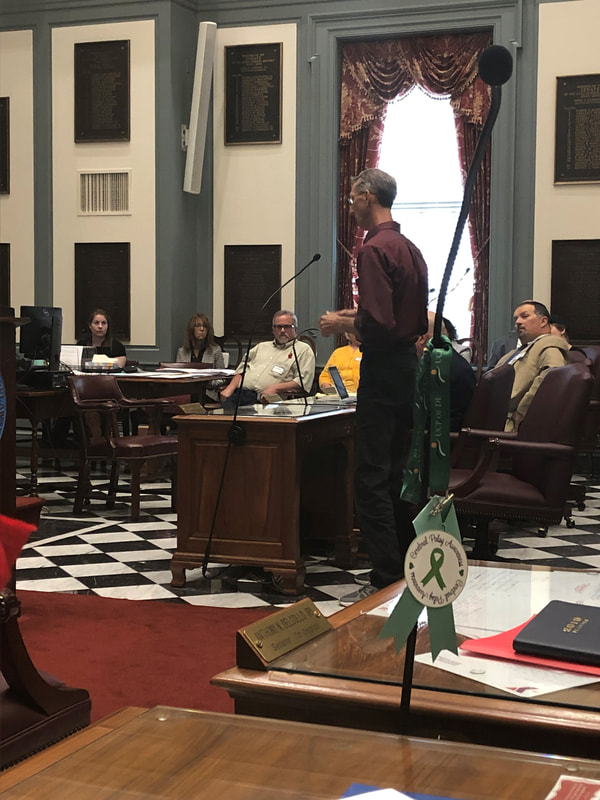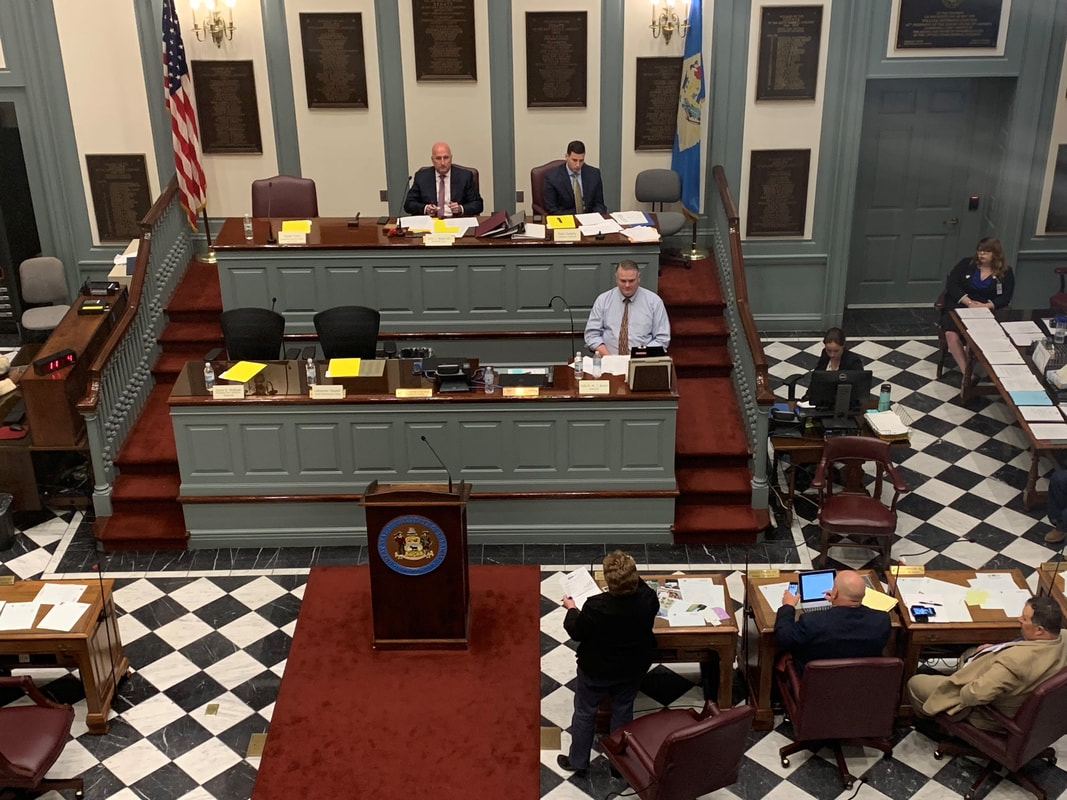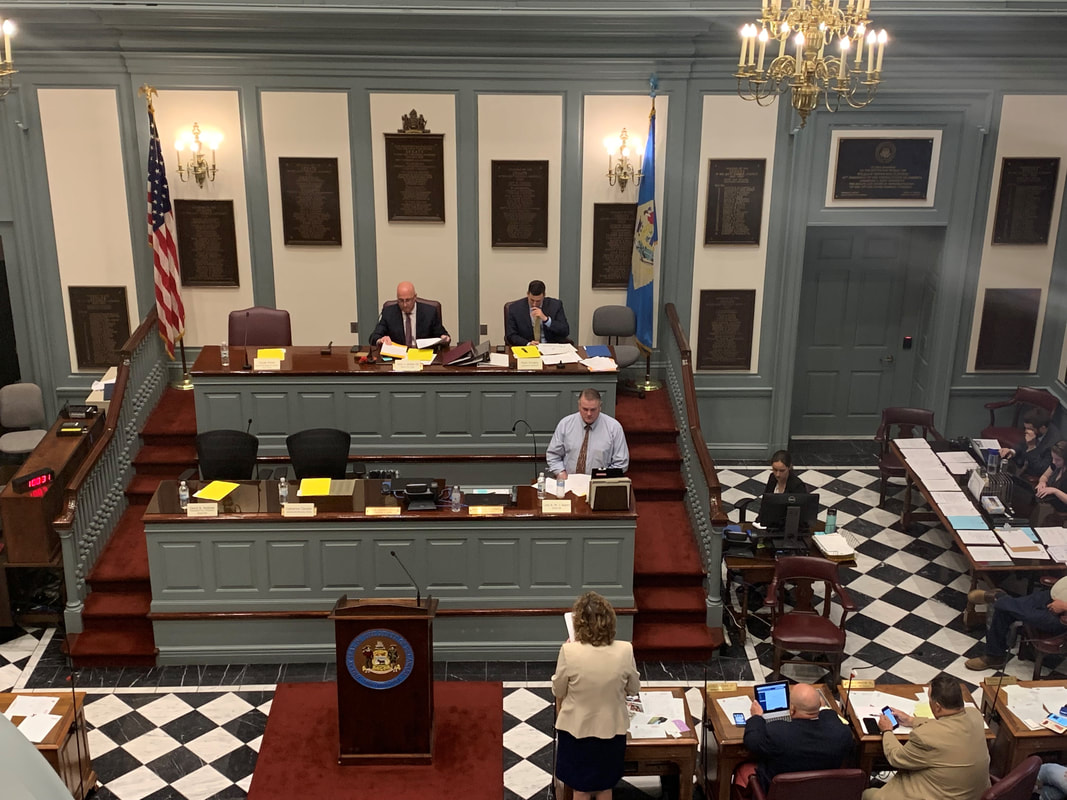|
By James DeChene, Armitage DeChene & Associates
The General Assembly gaveled out of session early on July 1, 2020 in what was the earliest ending in recent memory due to what has been an almost indescribable year to date. With little to no drama on the money bills (Budget, Grants in Aid, and Bond) as they were passed on June 29th, the General Assembly was left to close out a few bills on consent agendas. The Senate said goodbye to retiring Senator Harris McDowell, and the House bid farewell to retiring Representative Quinn Johnson. This means that for next session there will be two new co-chairs for the Joint Finance Committee and both the Senate and House Energy Committees will have new chairs as well. As the General Assembly came back to session in January, members seemed poised to pass a series of legislation that included increasing Delaware’s minimum wage, expanding worker’s rights, and increasing the role and presence of private and public employee unions. Those bills largely went nowhere, and with the COVID-19 pandemic altering how the legislature would work, those bills were placed on hold until next year. The same can be said for legislation the business community supported as well. Efforts to invest in clean water infrastructure, building a new high school in the City of Wilmington, modifying the state’s offerings of Association Health Plans and creating new workforce training platforms (more on that later) all took a pause as well. That said, a number of bills important to the business community were introduced, and some were acted on in the final weeks of this session. They included:
In the midst of three months of uncertainty, countless Zoom meetings with Governor Carney, members and staff from his Administration, the chambers of commerce community, stakeholder groups and others, there were a number of positives that were announced, and work completed ahead of schedule. The State Chamber has long been an advocate for rural broadband development and adoption. Last year’s announcement of BlooSurf, a project to bring broadband to western Sussex and Kent counties was met with fierce approval. Originally slated to be completed in 18-24 months, the project was able to be completed in just over 12 by using federal CARES Act funds to speed up the building process. In July 2020, 15 towers are set to be completed. Efforts to promote residential adoption of broadband will roll out soon after in preparation for what could be another school year of distance learning. Now children in these communities will be able to be active participants. Similar broadband adoption efforts are taking place in Wilmington with the similar goal of making sure all children have access to distance learning efforts. For the last year, the State Chamber has pushed for the creation of a workforce training program similar to what has worked with ZipCode Wilmington. A compressed, 40-hour week training schedule focusing on in-demand career paths that will help transition low-skill workers into better paying jobs. While the legislation creating this program was not worked on this year, we continue to work with Governor Carney and his Administration on creative ways to implement such a program, especially in light of the potential permanent job losses related to COVID-19. WHAT'S NEXT? Between now and January 2021, when the 151st General Assembly convenes, much will have happened:
There remains a great deal of uncertainty as we enter the second half of 2020. What does remain certain, however, is the Delaware State Chamber of Commerce’s dedication to advocacy on behalf of its members – the business community. Look for more opportunities in the coming months to hear from experts on the latest trends as the COVID-19 pandemic, and recovery, continue to evolve. Also look for innovative networking opportunities and other creative ways to get your business noticed. For more information, check www.DSCC.com.
0 Comments
Earlier this morning the General Assembly finished their work for the first leg of this legislative session. Items of note included a budget that set aside close to $125 million in reserves for future years, the largest bond bill in Delaware history, and a grant-in-aid bill with more money allocated than in recent years.
Of specific note for the business community are the bills that did not find their way to passage, although many will return in January. They include a minimum wage increase, a tipped worker minimum wage increase, and the legalization of recreational marijuana. The Chamber continues work on a number of items into next year, including finding creative ways to lower health care premiums for small and medium sized businesses, investments in workforce development and training opportunities for unemployed and underemployed workers, and finding innovative ways to attract and retain high level talent for employers looking to expand and relocate here in Delaware. The State Chamber thanks you for your engagement this legislative session and we look forward to working with you next year in making sure Delaware is the best place to live, work and do business. by James DeChene This week, the last of this session saw a few bills of importance to the business community being either introduced or worked. One is SB 71, a bill that would mandate that all future pharmacies run in Delaware be owned and operated by a pharmacist or an entity comprised of a majority of pharmacists. This would have serious impacts on the pharmacy, developer and construction industries in Delaware, as chain pharmacies, grocery stores and stores like Walmart and Target would no longer be able to run their pharmacies themselves, and would instead have to lease out space to pharmacists/pharmacist groups if they wanted one in their store. This would have a chilling effect on future development and expansion of these entities in Delaware, including potentially putting the kibosh on the proposed Wegmans in Barley Mill. The State Chamber and others have asked for the bill to be delayed until next year so that we can work toward a compromise. More to come. Two bills involving tipped workers and minimum wage were introduced this week. One would raise the tipped worker minimum wage to 65% of the current minimum wage, and the other would govern how tips are reported and paid out by an employer. The State Chamber is currently reviewing these bills with industry organizations and representatives to judge their impact. The Senate passed the Bond bill late Thursday night, totalling $816MM for FY19 and $862.9MM for FY20, where it now faces a vote in the House. The General Assembly will meet on Sunday and into Monday as they finalize the last minute spending bills (bond and grant in aid) and work to get their last minute must-haves passed. Look for an update Monday on the big ticket items accomplished. by James DeChene
This week in Dover saw the General Assembly continuing their work prior to the June 30th recess. Items of note included confirmation that the minimum wage bill will not be worked on again until January, and the same for the legalization of marijuana. The State Chamber will continue to advocate on behalf of the business community educating members of the General Assembly of the pitfalls of these bills, and will be looking to our members to help share their stories. The House passed the budget bill this week, along with an approximate $61 million one-time spending bill to be administered by the Office of Management and Budget. Once bond and grants in aid bills are finalized, that will dictate how much will be used in the set aside for reserves (a reminder that the State Chamber has called for $125 million to be set aside). A bill that would allow school districts to provide students with bus passes, allowing them to get to school and potentially to after school jobs, passed the Senate where it now heads to the House. A bill that would increase the penalties for failure to file their proof of unemployment insurance each quarter from $17.25 to a minimum of $100 with a cap of $450. Next week is the final week of session, ending June 30/July 1. Items to be considered, along with finalizing the budget, will be bond bill, grants in aid, and perhaps the workplace fraud act legislation that the Chamber and others have been working on for about a year now. More to come. by James DeChene This week in Dover the major bill impacting the business community was SB105, which will raise Delaware’s minimum wage to $15. We started off the week hosting a teletown hall with over 50 members joining to hear the latest on timing and strategies, and a number of businesses joined us in Dover to make comment on the bill at the Senate Labor Committee. The stories business leaders shared during the committee meeting were compelling and varied, and included entities ranging from nonprofits to small and medium sized businesses from bakeries to a small business sign maker. Ultimately the bill was released from committee and has now been assigned to Senate Finance Committee due the bill’s significant fiscal note. If you have not taken the opportunity to contact your senator on this bill, I urge you to do so by visiting our Action Network page. Other bills of note: The passage of a Chamber-backed bill in SB61, which would create a Transportation Infrastructure Investment Fund (TIFF) to help expedite commercial and industrial development projects. Released out of committee was SB74. This bill would make a technical change to the New Economy Jobs credit making it easier and more likely businesses will be able to take advantage of the credit. Moving forward, there are 7(!) legislative days left this session. DEFAC will meet next Wednesday to announce the final forecast numbers that will dictate how much money will be allocated to the bond and grant-in-aid bills. members testifying against sb105 on june 12:
by James DeChene
The General Assembly ended work at 8:30 a.m. on July 1. Included was Grant in Aid and capital spending. A bill passed at 4 a.m. to raise minimum wage by $.50 the next two years. The bill did not get a house hearing and was a controversial action decried by House Rs. DSCC supported passage of a bill to sustain the funding for the state’s brownfield’s program. Also passed was a bill mandating sexual harassment training. DSCC worked to amend that bill making it better for business. Look for a more in depth recap in the next issue of Delaware Business magazine. by James DeChene
The JFC completed work on a $4.3 billion budget this week, leaving roughly $61 million in additional spending between now and June 30th. Restoration of Grant in Aid funding from last year’s cuts are expected (about $8 million), but there will still be a hefty amount left to distribute, which may be sent to the Capital Improvement Committee for an increase in one-time infrastructure spending this year. Next week, the General Assembly is back in session, and starting the countdown of 13 legislative days left until June 30. They will have their hands full with pending gun legislation, finalizing spending, and working on the remaining bills relevant to the business community including making changes to the WARN Act, Sexual Harassment Training, Minimum Wage, and Biometric Data Privacy. The Chamber hopes the General Assembly will introduce and pass the first leg of a constitutional amendment related to budget smoothing. We will keep you informed on all these issues, and others as they come up. by James DeChene
Last week Governor Carney and Treasurer Simpler released a bipartisan plan to help address Delaware’s economic boom and bust cycles. Last year’s $400 million budget shortfall highlighted the volatility in our state’s revenues, and this year’s $400 million increase in revenues, while a boon, is an $800 million swing in just one year. For a state with a $4 billion budget, that kind of shift is incredibly significant. Enter in the budget smoothing idea. Making changes to smooth out these peaks and valleys in our revenue stream has been a Chamber priority since 2015 when DEFAC released its revenue report. This report highlighted how volatile Delaware’s revenues are and provided a blueprint on how to prepare Delaware for the future, putting it on a path toward sustainability. The state has undertaken some of that blueprint by making changes to Delaware’s escheat program and by changing how companies calculate their corporate income tax to a single sales factor. The next part of the process needs to happen now! A constitutional amendment, the first leg of which needs to be passed this year, would help create a true rainy day fund to be used in times of need, and added to in good times. In fact, the Joint Finance Committee itself voted this week to defer $46 million of this year’s revenue to future spending—exactly the way the budget smoothing process would be utilized. The benefits to budget smoothing are good for businesses, who won’t be subject to knee jerk reactions to raise money fast to balance a budget through tax and fee increases. It also helps Delaware’s nonprofits who receive Grant-in-Aid funding better plan year to year instead of facing last minute cuts in the down years and hoping for their replacement in the up years. With revenues projected to be close to $500 million this year above last year’s budget, the time is ripe to make improvements to Delaware’s future. There’s no negative impact to funding, or to this year’s budget, and the case is strong to act now to plan for an uncertain future. by Mark DiMaio
In 2017, we invited Chamber members to participate in a survey to gauge their view of Delaware's economic health, and provide input on policy priorities. Listed below are the top four, along with ways the Chamber is addressing them. 1. Economic Development The Chamber is dedicated to promoting an economic climate that strengthens the competitiveness of Delaware businesses and benefits citizens of the state.
2. Cost of Health Care The Chamber recognizes the growing problem surrounding health care costs.
3. Government Spending We will continue to advocate for structural changes to Delaware’s budget. Delaware needs fiscal policies that foster business growth and advance the state’s long-term economic future.
4. Education Reform (K-12) Improving education outcomes is a key factor in developing a skilled workforce and attracting new business to Delaware.
by James DeChene
The December labor report was recently released and shows that in 2016 Delaware had a net increase of 350 new jobs over the course of the year, and 2017 is looking to be the same, though there may even be a slight net loss for the year. The January report will reflect what truly happened in 2017, but odds are it won’t be pretty. Surrounding states have seen higher growth than Delaware: Maryland at 2%, Pennsylvania and New Jersey at over 1% - while we are shrinking, they are growing. This week, members of the Joint Finance Committee started their budget process. Over the next five weeks, members will review agency budgets and various funding requests, including Grant in Aid, and will work to craft a spending plan using the Governor’s recommended budget as a starting point. While forecasted revenues show a 6% increase over last year’s, next year’s growth number is back under 2%. The challenge will be for legislators to be spendthrifts during a time of increased revenues, and planning for the out-years where spending obligations will continue to outgrow revenue. Not an easy task in an election year. More info to come as it develops. |
Archives
July 2024
Categories
All
|
|
Copyright Delaware State Chamber of Commerce, Inc.
All Rights Reserved. PO Box 671 | Wilmington DE 19899 (302) 655-7221 | [email protected] | sitemap |
|




 RSS Feed
RSS Feed